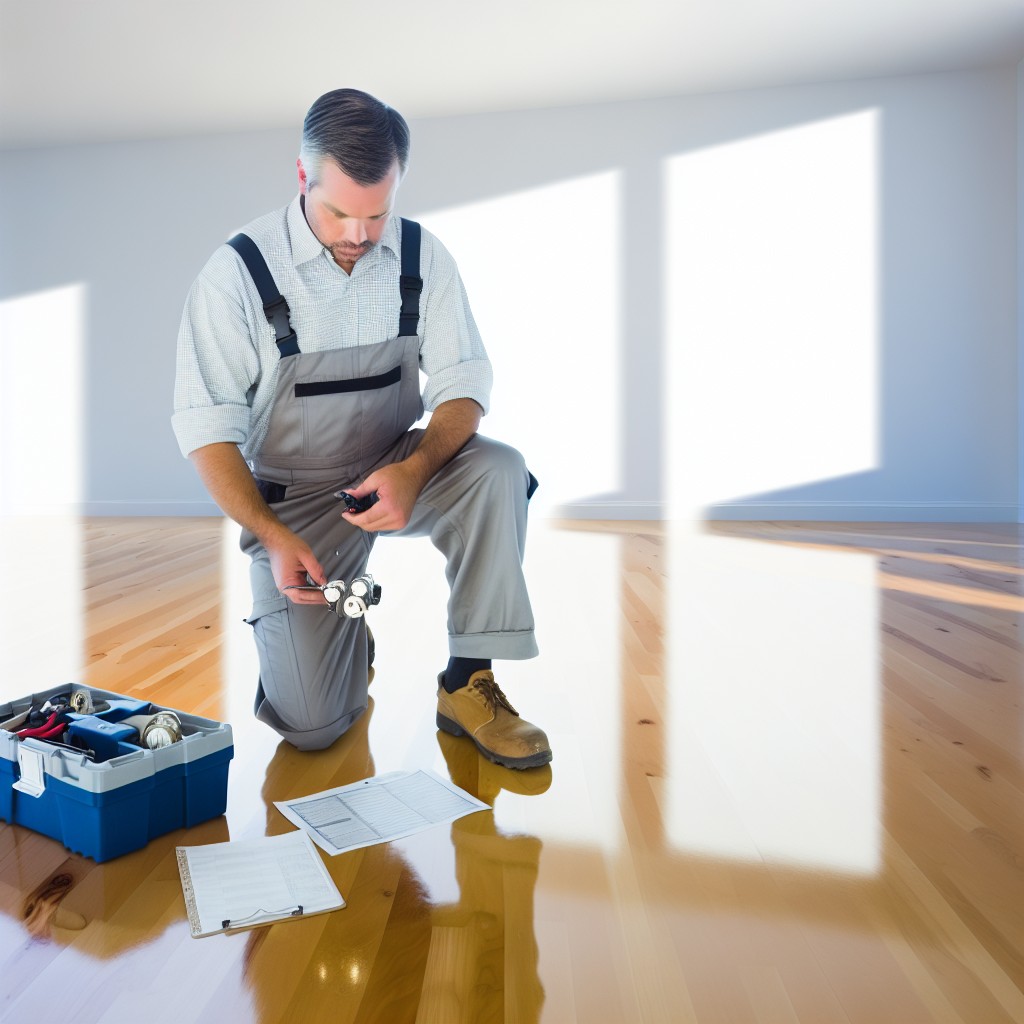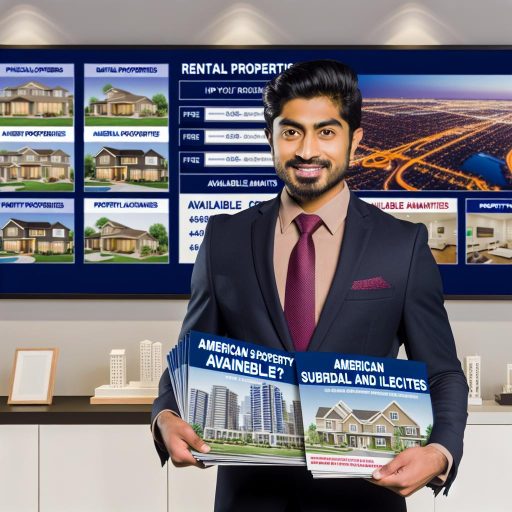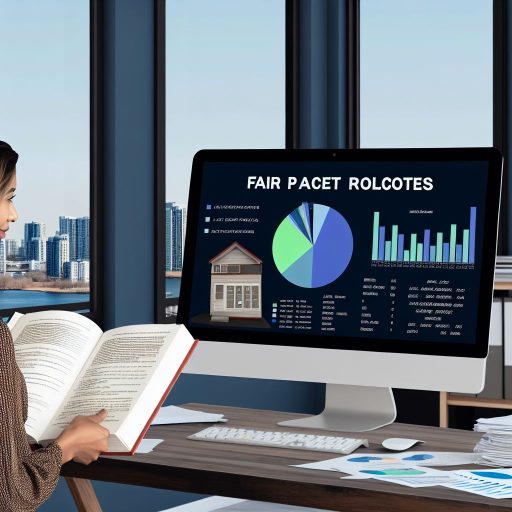Understanding the Importance of Preventative Maintenance for Rental Properties
Enhancing Property Longevity
Preventative maintenance significantly extends the lifespan of your rental properties.
Regular inspections help identify potential issues before they escalate.
This proactive approach conserves both time and money in the long run.
Ensuring Tenant Satisfaction
Keeping properties well-maintained contributes to tenant happiness.
Happy tenants are more likely to renew their leases and keep the property in good shape.
Moreover, positive experiences lead to better reviews, enhancing your reputation.
Reducing Emergency Repairs
Preventative maintenance minimizes the occurrence of emergency repairs.
By addressing small issues promptly, major problems can be avoided.
This reduces stress for both landlords and tenants alike.
Compliance with Regulations
Staying compliant with building codes and safety standards is essential.
Regular maintenance checks ensure every aspect meets legal requirements.
This reduces the risk of costly fines and legal issues down the line.
Improving Energy Efficiency
Routine maintenance enhances the energy efficiency of your properties.
Upgrading systems like HVAC can lead to lower utility bills.
Energy-efficient properties also attract environmentally-conscious tenants.
Transform Your Real Estate Decisions
Unlock personalized real estate insights crafted just for you. Get actionable advice designed to amplify your success.
Get StartedBoosting Property Value
Regular upkeep can increase the overall value of your investments.
Potential buyers see well-maintained properties as more desirable.
Long-term value rises when you consistently invest in maintenance.
Creating a Maintenance Schedule
Monthly Tasks
Establishing a monthly maintenance routine is essential.
Check smoke detectors and replace batteries as needed.
Inspect all common areas for wear and tear.
Clean gutters to prevent water damage.
Test HVAC systems to ensure optimal performance.
Evaluate landscaping and prune as necessary.
Quarterly Tasks
Quarterly inspections help identify issues early.
Examine plumbing for leaks under sinks and in basements.
Service HVAC systems to maintain efficiency.
Inspect fire extinguishers and ensure they are charged.
Check window seals and reapply caulking if necessary.
Showcase Your Real Estate Business
Publish your company profile on our blog for just $200. Gain instant exposure and connect with a dedicated audience of real estate professionals and enthusiasts.
Publish Your ProfileClean gutters thoroughly to prevent blockage.
Annual Tasks
Annual maintenance tasks ensure property longevity.
Conduct a thorough roof inspection for damage.
Hire a professional to inspect the electrical system.
Evaluate the plumbing system and replace aged fixtures.
Perform a deep clean of carpets and flooring.
Review lease agreements and update any necessary clauses.
Record Keeping and Scheduling
Maintain a maintenance log for all completed tasks.
Use scheduling tools or apps to remind you of upcoming tasks.
Communicate with tenants about upcoming maintenance schedules.
Consider creating a checklist for easy tracking.
Utilize a dedicated folder for all maintenance receipts.
Essential Systems to Monitor
HVAC System
Your HVAC system requires regular inspections for optimal performance.
Start by changing the air filters every month or as recommended.
Next, schedule professional maintenance twice a year to ensure efficiency.
Additionally, keep the outdoor unit clean and free of debris.
Monitor the thermostat settings to maintain consistent temperatures.
Finally, address any unusual noises or odors immediately.
Plumbing System
Regular plumbing checks can prevent costly repairs later.
Inspect for leaks under sinks, around toilets, and in basements.
Consider flushing your water heater annually to remove sediment build-up.
Test water pressure periodically to ensure it remains within a safe range.
Also, examine all visible pipes for signs of corrosion or damage.
Train tenants to report issues promptly for timely fixes.
Electrical System
Your electrical system needs routine inspections to ensure safety.
Check outlets and switches for signs of wear and tear.
Consider hiring a professional to inspect the wiring every few years.
Make sure to test smoke detectors and carbon monoxide alarms monthly.
Replace burnt-out bulbs to maintain good lighting conditions.
Finally, educate tenants on the safe use of extension cords.
Showcase Your Real Estate Business
Publish your company profile on our blog for just $200. Gain instant exposure and connect with a dedicated audience of real estate professionals and enthusiasts.
Publish Your ProfileFind Out More: How to Improve Energy Efficiency in Rental Properties
Conducting Regular Property Inspections: What to Look For
Purpose of Inspections
Regular property inspections identify potential issues early.
This practice ultimately saves money and time.
Additionally, it helps maintain tenant satisfaction and property value.
Frequency of Inspections
Conduct inspections at least twice a year.
More frequent inspections are advisable in high-traffic rentals.
Consider inspecting before new tenants move in.
Exterior Inspection
Start your inspection from the outside of the property.
Check the roof for damage or missing shingles.
Inspect gutters and downspouts for clogs and leaks.
Examine siding for cracks or peeling paint.
Look for signs of pest infestations around the perimeter.
Ensure walkways and driveways are in good condition.
Interior Inspection
After examining the exterior, move indoors.
Check for leaks under sinks and around toilets.
Test all appliances and heating/cooling systems.
Examine windows and doors for proper sealing.
Inspect walls for cracks or signs of moisture damage.
Safety Features
Evaluate smoke detectors and carbon monoxide alarms.
Make sure fire extinguishers are accessible and functional.
Check for security features such as locks and cameras.
Documentation and Follow-Up
Document your findings during each inspection.
Take notes and photos of any issues that arise.
Use this information to create a maintenance schedule.
Once issues are identified, follow up promptly with repairs.
Keep tenants informed about any upcoming maintenance work.
You Might Also Like: Essential Insights Into Lease Agreement Documentation For US Property Management
Preparing for Seasonal Changes: Winterizing and Summer Readiness
Winterizing Your Rental Property
Begin winter preparations well before the first snowfall.
Inspect the roof for any potential leaks.
Clear gutters and downspouts to ensure proper drainage.
Showcase Your Real Estate Business
Publish your company profile on our blog for just $200. Gain instant exposure and connect with a dedicated audience of real estate professionals and enthusiasts.
Publish Your ProfileSeal any cracks around windows and doors to prevent drafts.
Service the heating system to ensure efficiency.
Replace filters in the heating system regularly for optimal performance.
Consider adding insulation in attics and crawl spaces.
Test smoke and carbon monoxide detectors, replacing batteries as needed.
Provide tenants with guidelines for snow removal responsibilities.
Summer Readiness for Your Rental Property
Prepare for the summer heat well ahead of time.
Inspect air conditioning units to ensure full functionality.
Encourage tenants to keep blinds closed during the hottest parts of the day.
Perform maintenance on outdoor spaces, such as cleaning decks and patios.
Check for and address any pest issues before they escalate.
Ensure pool maintenance if applicable, keeping it clean and safe.
Provide tips for water conservation during the summer months.
General Maintenance Tips
Routine inspections help catch issues before they become expensive repairs.
Schedule seasonal check-ups with a qualified contractor.
Document all maintenance activities for future reference.
Create a maintenance checklist to keep track of completed tasks.
Encourage open communication with tenants about property conditions.
Address tenant concerns promptly to maintain a good landlord-tenant relationship.
See Related Content: Social Media Advertising Tips for Marketing Rental Properties Online
Budgeting for Preventative Maintenance
Preventative maintenance is essential for rental property owners.
Setting aside funds for these efforts reduces emergency repairs.
This approach promotes tenant satisfaction and property value.
Understanding the Importance of Budgeting
Budgeting for maintenance ensures you can address issues promptly.
It helps you avoid costly repairs caused by neglect.
Moreover, a well-planned budget enhances your financial stability.
Creating a Realistic Maintenance Budget
Start by evaluating your property’s needs.
Consider factors like the property age and condition.
Include routine tasks such as HVAC servicing and landscaping.
Allocate funds for unexpected emergencies as well.
Showcase Your Real Estate Business
Publish your company profile on our blog for just $200. Gain instant exposure and connect with a dedicated audience of real estate professionals and enthusiasts.
Publish Your ProfileThis flexible approach allows you to respond effectively.
Monitoring and Adjusting Your Budget
Regularly review your maintenance expenses and needs.
Identify patterns to gauge future financial requirements.
Adjust your budget according to property changes.
For instance, older properties may need more attention.
Stay proactive by reassessing your financial plan each year.
Consulting with Professionals
Consider hiring property management experts for insights.
These professionals can provide valuable recommendations.
Furthermore, they can help you prioritize maintenance tasks.
Engaging with contractors for cost estimates also proves beneficial.
This collaboration enables better budget planning.
Gain More Insights: How to Write Compelling Rental Listings That Attract Quality Tenants

Building a Reliable Vendor List: Contractors and Repair Services
Identify Needed Services
Rental property maintenance requires a variety of services.
Start by identifying the specific needs of your properties.
Consider plumbing, electrical work, and general repairs.
Each property may have unique requirements.
Research Local Vendors
Conduct thorough research to find local contractors.
Look for those with strong reputations in your community.
You can use online reviews, referrals, and local directories.
Ask for recommendations from other property owners.
Evaluate Credentials
Verify the qualifications of potential vendors.
Check licenses, insurance, and certifications.
Some tasks may require specific licensing or skills.
Ensure the vendors comply with local regulations.
Assess Experience
Experience significantly influences a vendor’s reliability.
Favor vendors with a proven track record in rental maintenance.
Ask how long they have been in the business.
Experience with similar properties can be an advantage.
Get Multiple Quotes
Seek quotes from several vendors for comparison.
Make sure to receive detailed estimates including all costs.
Showcase Your Real Estate Business
Publish your company profile on our blog for just $200. Gain instant exposure and connect with a dedicated audience of real estate professionals and enthusiasts.
Publish Your ProfileThis approach ensures you get fair pricing.
Do not hesitate to negotiate if necessary.
Establish Strong Communication
Good communication is vital for successful vendor relationships.
Ensure your vendors are responsive to queries and concerns.
Clear communication prevents misunderstandings regarding scope and costs.
Discuss your expectations and timelines upfront.
Build Long-term Relationships
Invest time in building relationships with reliable vendors.
Consistent collaboration leads to better service and trust.
A dependable vendor list streamlines future property maintenance.
Consider loyalty discounts as a benefit of ongoing partnerships.
Review and Update Regularly
Regularly review your vendor list to ensure its relevance.
Replace vendors who do not meet your quality standards.
Keep your options open by continuing to search for new contractors.
This practice ensures you have the best resources available.
Documentation and Tracking: Keeping Records of Maintenance Activities
Importance of Record Keeping
Maintaining records of all maintenance activities is essential for rental property owners.
Well-documented records provide insights into the property’s condition over time.
Additionally, they help track expenses and monitor trends in maintenance needs.
Creating a Maintenance Log
Start by creating a comprehensive maintenance log for your rental properties.
Include details such as the date, type of work done, and costs incurred.
This log can be a simple spreadsheet or a more elaborate software solution.
Consistently updating this log will prove beneficial during inspections or audits.
Utilizing Technology for Tracking
Leverage property management software to streamline maintenance tracking.
Many software options allow you to schedule and document maintenance tasks easily.
These platforms often provide reminders for routine maintenance tasks.
Storing Documentation
Store all maintenance receipts and technician contracts in one secure location.
Digital storage solutions can reduce clutter and improve accessibility.
Consider using cloud-based systems for backup and easy retrieval.
Conducting Regular Reviews
Regularly review your maintenance records to identify patterns and concerns.
This practice encourages proactive maintenance rather than reactive repairs.
Addressing issues early can save time and money in the long run.
Showcase Your Real Estate Business
Publish your company profile on our blog for just $200. Gain instant exposure and connect with a dedicated audience of real estate professionals and enthusiasts.
Publish Your ProfileEngaging with Your Tenants
Encourage tenants to report maintenance issues promptly.
Creating a simple reporting system can facilitate timely communication.
A responsive approach increases tenant satisfaction and property longevity.
Communicating with Tenants
Encouraging Early Reporting of Issues
Open lines of communication are vital between landlords and tenants.
Encouraging tenants to report issues early helps prevent larger problems.
Use clear channels for reporting maintenance requests.
Email, text, or a dedicated phone line work well for communications.
Ensure tenants know how to reach you quickly for urgent problems.
Creating a Responsive Environment
Promote a culture of responsiveness to tenant concerns.
Respond to maintenance requests promptly to build trust.
Regular follow-ups can reassure tenants that their needs are addressed.
Timing is critical when addressing reported issues.
Providing Clear Guidelines
Supply tenants with straightforward guidelines for reporting issues.
Lists can clarify types of problems and expected responses.
This approach simplifies the process and reduces confusion.
Include information on non-emergency versus emergency requests.
Incentivizing Communication
Consider offering small incentives for timely issue reporting.
Rewards can motivate tenants to communicate early.
For instance, provide discounts on rent for proactive tenants.
Encouraging open communication fosters a sense of community.
Additional Resources
HVAC Preventative Maintenance for Single-Family Rental Properties
Preventive Maintenance Checklist for Rental Properties – BFPM




